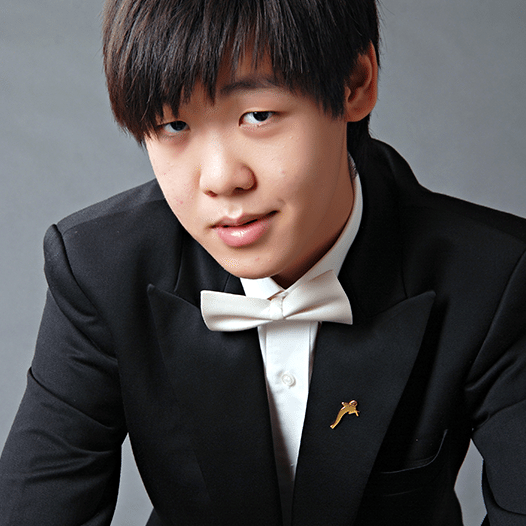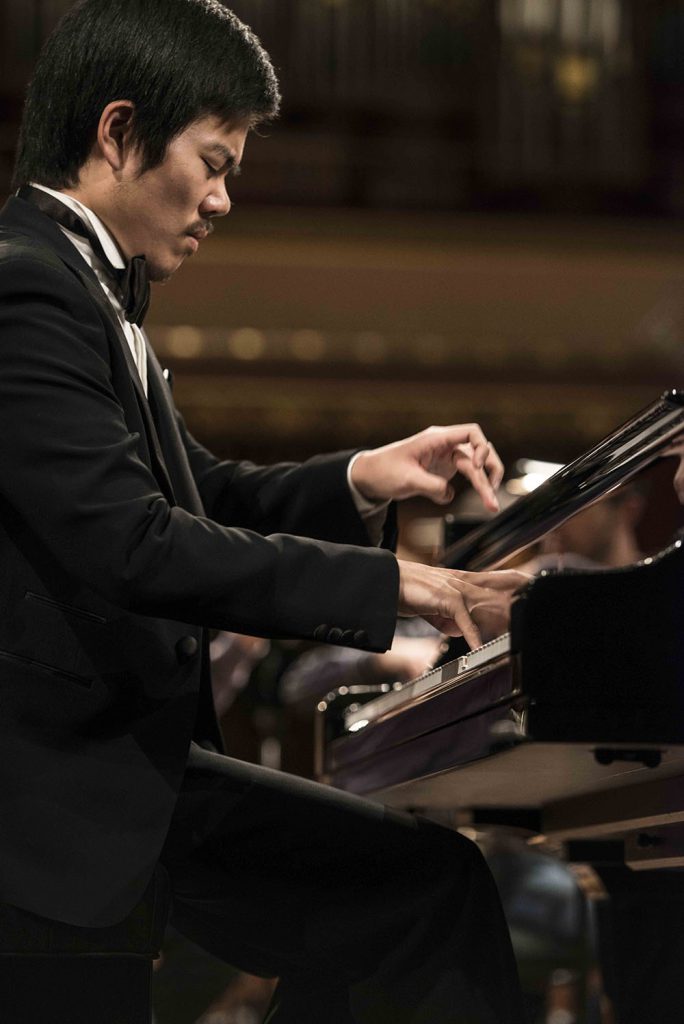Cliburn Semifinal: Round 2

Yutong Sun
After considerably refreshing the quarterfinal round by introducing Bartok and Ligeti into a field dominated by nineteenth-century music, Chinese pianist Yutong Sun, 21, fell back on a repertoire of standards in his semifinal round recital.
Opening promisingly by tenderly shaping the opening descending chords of Beethoven’s Sonata No. 26 (“Les Adieux”), Sun presented an admirably convincing rendition of Beethoven’s emotional portrait during the first two movements; however, in the final Vivacissamamente—either through youthful enthusiasm or unbridled virtuosic showmanship, or both—he leaned too heavily into Beethoven’s high spirits, turning the joy of return into a raging pianistic storm.
In the other direction, in Liszt’s “Sospiro” Etude, Sun provided an anemic, uneven reading of the cantando melody line. It became evident that either nerves or fatigue were overtaking Sun when he played over applause to go directly from Liszt into Mussorgsky’s Pictures at an Exhibition—surely not an artistic decision.
One might well wonder why competitors choose to play an overworked item like the Mussorgsky in a competition, and Sun’s performance certainly demonstrated the pitfalls. Although there were many admirable moments—for instance, the careful use of pedal in the recurring “Promenade” theme—the passagework began to falter, slightly but obviously, as early as the “Tuileries” section, and the extended trills in the “Catacombs” section were frail and imprecise. By the arrival of the triumphant “Gate of Kiev” section, Sun had lost impetus.

Honggi Kim
Honggi Kim began his program impressively as well, with Australian composer Carl Vine’s Sonata No. 1 of 1990. While not a standard in the concert hall, this extremely demanding two-movement sonata has become a fairly frequent item at competitions, with intriguing musical content encapsulated in nonstop technical demands and arresting musical effects. Kim roared and floated through the brilliant effects toward a pianississimo final B natural, one note below the end of the keyboard.
Schumann’s Kreisleriana continued Kim’s impressive display of technical and emotional control of demanding material, as he matched Schumann’s rich flow of musical ideas with constantly fine, controlled, and imaginative interpretations.
In a program clearly aimed at impressing jurors and taking a gold medal, Kim hit a miscalculation with Soviet-era Russian composer Samuil Feinberg’s transcription of the Scherzo from Tchaikovsky’s Pathetique Symphony. Missed notes and missed opportunities multiplied as Kim finally crash-landed with a disappointing close to an otherwise impressive performance.